مشاريع فتية
تذهب هذه الجائزة إلى مجموعات اجتماعية ومنظمات وشبكات ومنشآت فتية (1-5 سنوات) والتي لها سجل أعمال ناجحاً ومشهوداً وتبحث عن تمويل أكبر للتوسع او التطور.
هناك ثلاث جوائز على الأقل في هذه الفئة ، يتم منح كل منها ما يصل إلى 20000 جنيه إسترليني.
نهدف إلى منح جائزة منهما لمشروع صغير ضمن هذه الفئة.
2025年賞の候補にノミネート:
Amazon Research Internacional
Amazon Research Internacional (ARI) is a Peru-based organisation founded in 2021 which unites traditional knowledge with modern science to regenerate the Amazon Rainforest sustainably, safeguarding biodiversity, culture, and communities.
ARI is focused on preserving biodiversity, ecosystems and indigenous knowledge through conservation, research, education and community empowerment. Its mission is to mitigate climate change, regenerate species and ecosystems, elevate traditional knowledge, and empower livelihoods that benefit both nature and culture.
Operating in four regions – Loreto, Junin, Madre de Dios, and Cuzco – ARI has also partnered with Ese Ejje women in the Bolivian Amazon as a fifth regional pilot. It collaborates with Kukama-Kukamiria, Ashaninka, and Harakbut communities, each with unique worldviews, yet united by the belief in the interconnectedness of nature and humanity.
The organisation has a particular focus on stingless bees, vital to Amazonian ecology and culture. The bees’ decline threatens soil health, food chains, traditional medicine, and centuries-old cultural knowledge. ARI documents traditional knowledge on stingless bees and complements this with groundbreaking scientific research.
It is also currently partnering with the Earth Law Centre to develop the first Rights of Nature declaration for stingless bees. This is led by Ashaninka communities and will be presented to local municipalities and eventually to Congress for legal protection.
- 2025
- Young Projects
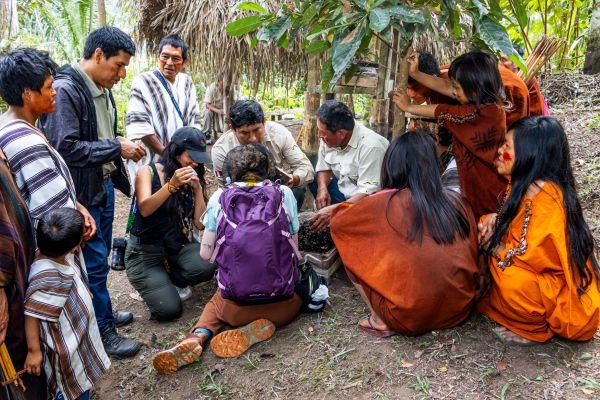
معلومات المشروع
- Spanish and English
- https://www.amazonresearch.org/
- https://www.instagram.com/amazonresearchint/
- amazon.ri.ong@gmail.com
- Ramon del Valle Inclan 135, Lima, Peru
Anasi Farmers Association
The Anasi Farmers Association promotes regenerative techniques to restore damaged lands, increase biodiversity and foster economic resilience in rural communities of Uganda in the Kasese district, a disaster prone area.
It is a youth-led group of passionate farmers and environmentalists, started in 2019 after recognising the need to address land degradation, improve agricultural practices and support disaster affected communities. The inspiration came from witnessing first hand adverse effects of poor farming practices, deforestation increasing the frequency of natural disasters which leads to soil erosion, reduced crop yields, displacement, hunger and increased poverty.
Its six acre permaculture demonstration site has turned into a training centre for agroecology and restoration practices.
Anasi Farmers Association has:
- Trained at least 100 people on site and over 500 farmers annually in the wider community, increasing food sovereignty and ecological balance.
- Successfully restored more than 50 acres of degraded land through agroforestry, planting over 10,000 native tree species that enhance soil fertility with a survival rate of 86 % and improve biodiversity.
- Worked closely with Internally Displaced Persons (IDPs) affected by floods and landslides providing them with essential resources, agricultural training to support them rebuild their lives.
- Implemented a plastic and polythene waste recycling programme to reduce environmental pollution and create economic opportunities.
- Established a community seed bank to preserve native.
Anasi Farmers Association wishes to continue to develop its agroecology programs and invest in building stronger community networks.
- 2025
- Young Projects
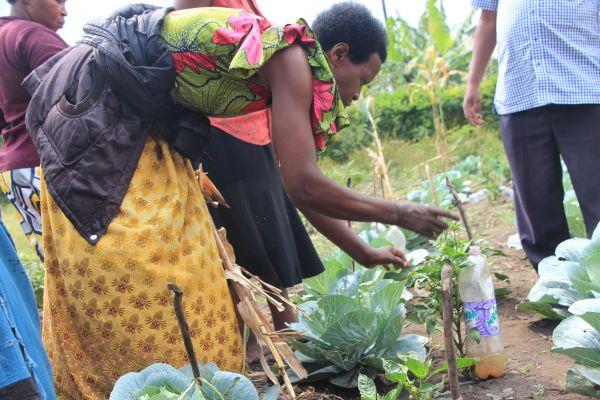
معلومات المشروع
- English
- https://anasifarmers.org
- www.facebook.com/amnasifarmers
- www.x.com/anasifarmers
- info@anasifarmers.org
- Mpondwe Road, Kiburara Trading Centre Kasese District Western Region 430592 Uganda
Battmung
Battmung was founded to create a sustainable permaculture village in South Korea where young people can thrive and learn about permaculture design.
It seeks to ensure the survival of the village, which is at risk due to an ageing population. Through permaculture, Battmung aims to bring its village back to life. It offers a 72-hour Permaculture Design Course (PDC) to youth and those who go on to become active designers stay connected through the Battmung Friends group.
Since its founding in 2021, Battmung has:
- Designed a 3,000-pyeong (approximately 2.5 acres) leaf field based on water flow and planted over 70 companion plants, working to restore the land with comfrey, clover, and native species.
- Hosted a number of climate-conscious dining events inspired by permaculture restaurants in Berlin.
- Been selected for the Ministry of Interior and Safety’s Youth Village Creation Support Project. Among 39 youth villages, Battmung was the only one focused on permaculture.
- Engaged with 300 young people, created 5 jobs and collaborated with 20 local residents on a festival that attracted 10,000 visitors.
Recognising the importance of connecting people, Battmung also contributed to the founding of the Korean Permaculture Association in 2023. Its goal is to organise its regional network and regenerate South Korea through permaculture, restoring soil, food chains, ecological awareness, and local economies.
- 2025
- Young Projects
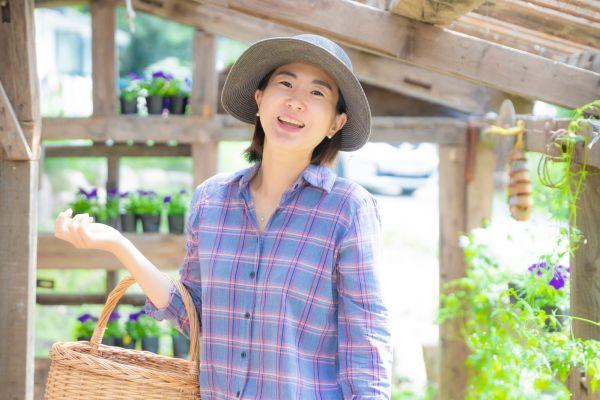
معلومات المشروع
- Korean
- https://www.instagram.com/battmung.log/
- battmung@naver.com
- Sangdong-eup, Yeongwol-gun, Gangwon-do, South Korea
Debt for Climate Africa
Debt for Climate (D4C) is a global grassroots movement led by the Global South. Its primary demand is the cancellation of financial debt for Global South countries to address the Global North’s ecological and colonial debt and enable a just energy transition.
Debt for Climate has multiple regional chapters, including Debt for Climate Africa (D4C Africa), which sees debt cancellation as crucial to enabling regeneration across the continent.
The Debt for Climate movement is driven by a belief in climate justice, equity and economic sovereignty. The emphasis is on fairness, recognising that Global South nations, though contributing the least to climate change, suffer the most. D4C urges Global North countries to own their current and historical role in the crisis.
- D4C builds people power through:
- Global mass mobilisations.
- Non-violent direct actions.
- Transformative education.
By combining diverse action tactics, it highlights debt, its connection to extractivist industries, and the role of institutions like the World Bank and IMF.
In 2022 and 2023 D4C Africa expanded its network across Uganda, Tanzania, Sierra Leone, Rwanda, and Zambia, particularly during the international climate summit, COP27.
Key milestones include:
- A 2022 protest at the World Bank in Johannesburg.
- Integrating Tanzania’s Maasai community in 2023.
- Attending major events like the Counter Summit in Morocco and African Climate Week further strengthened African chapters.
D4C Africa aims to create materials for education and youth empowerment, facilitate the mobilisation of activists in Africa and foster connections between global participants of the wider movement.
- 2025
- Young Projects
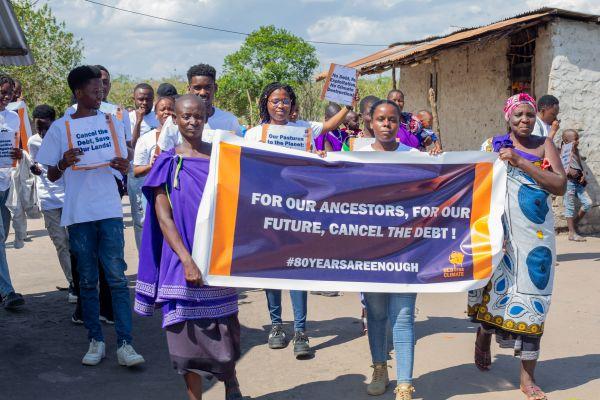
معلومات المشروع
- English, German and Spanish
- https://www.debtforclimate.org/
- https://www.facebook.com/DebtforClimate/
- https://x.com/debtforclimate
- info@debtforclimate.org
- 99 Parkway Avenue Sheffield England S9 4WG United Kingdom
FarmLab Ekopraxis Pilipinas
FarmLab Ekopraxis Pilipinas is an emerging network of grassroots collectives led by frontline youth working in food justice, land rights, conservation, ecosystem restoration and climate justice.
Founded in 2021, it started as a small initiative co-creating local food systems with communities through food forests, communal farms and gardens. Today, it working to facilitate grassroots action and define the national policy agenda on food, land and climate in the Philippines. Its work is a direct response to the ongoing shift to authoritarian, corrupt, and neoliberal leadership in the Philippines as well as the constant erosion of cultural and environmental knowledge in rural areas due to globalisation and the corporate capture of food systems.
FarmLab Ekopraxis currently works with twelve model sites, including farms and community gardens, across twelve communities and a range of contexts both urban and rural. These are being utilized by communities, NGOs, local government units and private organisations that have flourished as autonomous sites. It is also working on a community of practice of natural farms, community organisations, advocates and farmer-scientists that has over 250 collaborators that span across the Philippine archipelago.
The organisation aims to create a regenerative farming and agroecology toolkit, and facilitate the creation of regional assemblies, aimed at enhancing circular, just, and relocalized food systems through creative campaigns and field schools in the Philippines.
- 2025
- Young Projects
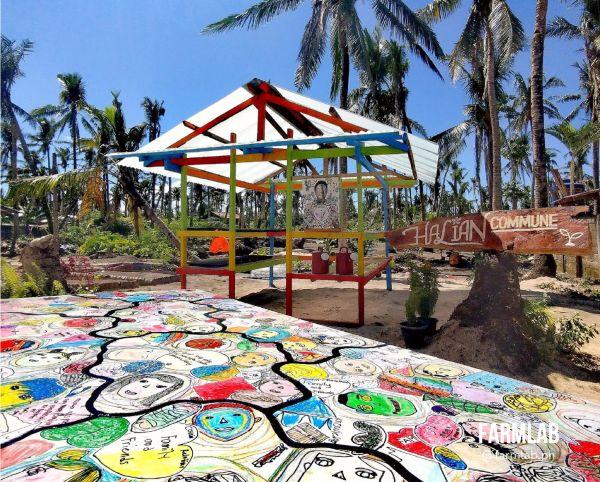
معلومات المشروع
- English and Filipino
- https://linktr.ee/farmlab.ph
- https://www.facebook.com/farmlab.ph
- Alojado Street Culasi Antique 5708 Philippines
Forest4Life
Forest4Life is a transformative initiative focused on restoring the natural environment of Kayovu Village, a dryland region of Rwanda in urgent need of ecological rehabilitation.
It works in a community heavily impacted by the consequences of climate change and unsustainable land use, which have compromised biodiversity and local livelihoods. Through hands-on restoration efforts, the planting of indigenous trees and educational initiatives, Forest4Life is committed to re-establishing a harmonious balance between people and nature.
Established in 2023, Forest4Life has:
- Successfully launched an environmental club at Kayovu Primary School, engaging young students in restoration activities and fostering a sense of environmental stewardship.
- With the support of local leadership and the Global Landscape Forum, laid the groundwork for establishing a large tree nursery, ensuring the sustainability and scalability of its efforts.
- By integrating community members in its programs, strengthened local capacities and raised awareness about the importance of environmental conservation, contributing to a more resilient and vibrant ecosystem in Kayovu Village.
- 2025
- Young Projects
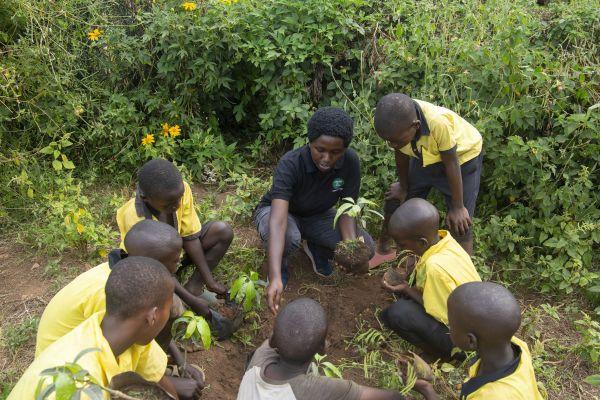
معلومات المشروع
- English
- https://forest4life.org/
- https://www.instagram.com/forest4liferwanda?igsh=bGdlYzNkZ3VwOW9z
- https://x.com/Forest4lifec
- +250780590733
- forest4life@gmail.com
- Kigali-Bugesera, Eastern Rwanda
Junglo
Based in Indonesia, Junglo helps people plant native forests in their homes, schools and offices, using the Miyawaki Method of afforestation.
It tries to understand the ecosystems that used to exist and aims to bring them back in small pockets, making climate action accessible to everyone. Junglo sees reviving connections between humans and forests as just as important as reviving the forests themselves.
So far they have:
- Planted over 25 forests, totaling over 25,000 trees of 100 different species, and close to 1 hectare of restored land.
- Involved more than 100 students in forest making.
- Exposed over 130 farmers to the Miyawaki Method in partnership with the Women’s Earth Alliance.
- Co-organised the first ever Miyawaki Forest Entrepreneurship Bootcamp.
- Developed a series of tutorials to make the Miyawaki Method accessible in Spanish and Indonesian in partnership with Afforestt.
Going forward Junglo wants to:
- Recover all the lost native forests of the world. Since it can’t do that alone, it seeks to share its knowledge.
- Sow a new generation that remembers how to live in harmony with nature. This is the main force behind “Junglo for schools”, which plants native forests in schools. It has also partnered with Pratisara Bumi Foundation to develop and deliver a teacher training programme that will help educators use the forest in their lessons.
- 2025
- Young Projects
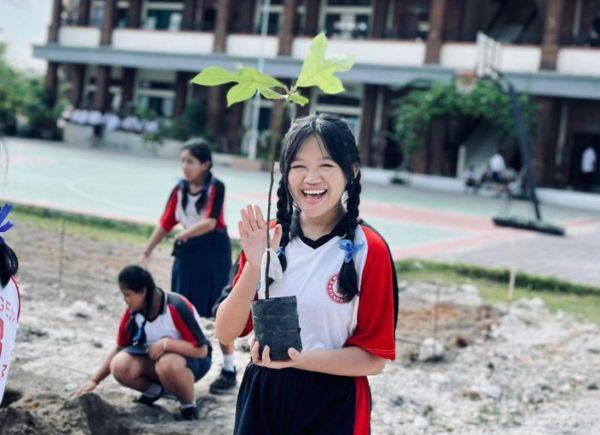
معلومات المشروع
- English and Indonesian
- https://www.junglo.org
- https://www.instagram.com/junglo.ecosystems/
- Seminyak, Kec. Kuta Badung Bali 80361 Indonesia
Land in Our Names
Land in Our Names (LION) is a collective of Black people and People Of Colour (BPOC) connecting its communities to the land as a means to achieve food, climate, land and racial justice.
LION believes that healing relationships with nature and land is also about healing the land and working in sustainable, reciprocal and caring ways. It strives towards collective land stewardship as a means to support its communities to access nutritious, delicious food grown using ancestral, sustainable and regenerative practices. It utilises different agroecological practices in its growing spaces and is passionate about learning African and indigenous farming practices which work in harmony with the land.
Since its founding in 2019 and an inspirational launch event in 2020, LION has continued to grow its collective and its reach:
- It has hosted numerous wellbeing and nature immersion events, talks on reparations, and held space for different BPOC growers and farmers to connect.
- It has published two research reports into racism in food growing and farming which have both had tremendous impact across relevant sectors.
- It began stewarding the Dandelion Garden in 2024, growing culturally appropriate foods and holding events for the collective’s communities to learn about food and connect with each other in green spaces.
- It is regularly featured in podcasts, radio shows and articles.
Seeing that demand for LION events is always greater than capacity, LION wants to scale up its event programme and continue to expand its network.
- 2025
- Young Projects
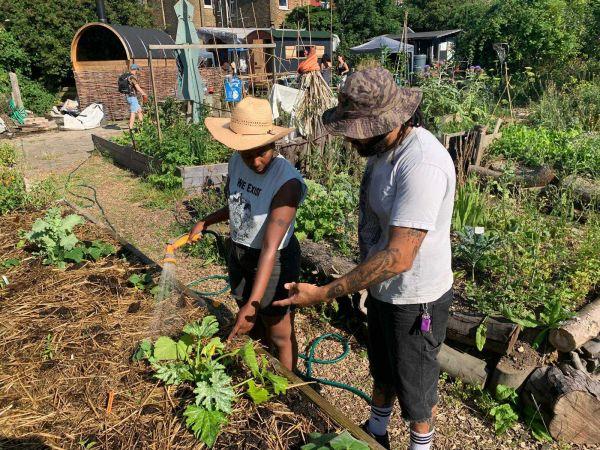
معلومات المشروع
- English
- https://landinournames.community/
- https://www.instagram.com/landinournames
- Glengall Wharf Gardens, 64 Glengall Road London SE156NF
Ñu’u Ndito
Ñu’u Ndito is a collective of 25 small-scale farmers in Mexico practising the traditional milpa farming system, with a focus on the cultivation and conservation of native, coloured cotton.
Seeing the damage caused by reliance on agro-chemicals and burning fields, the founders of Ñu’u Ndito started searching for alternatives. Working together this
collective has:
- Trained in ecological agriculture.
- Defined its own ecological standards.
- Produced a manual presenting ecological methods for production of native corn and cotton within the milpa system.
- Developed a participatory certification system for ecological agriculture production, which certifies their work on a whole-farm basis.
- Taken all necessary steps toward forming an independent cooperative.
- Participated in the co-development of a system to locally produce GMO-free native cotton seeds in five natural colours.
The group seeks to diminish the occurrence of GMO contamination of cotton in Oaxaca. It passionately wants to conserve both the local wild populations and cultivated varieties because they provide valuable fibre and form an important part of the cultural identity in the area. It collaborates with Khadi Oaxaca, an artisan collective which buys the majority of the cotton for use in producing artisanal textiles.
Ñu’u Ndito has just harvested the first generation of GMO-free cotton seeds from its greenhouse, which is the result of a unique collaboration with the researchers and students at the Autonomous University of Mexico. Now, Ñu’u Ndito can start planning for the expansion of the conservation program via the installation of living seed banks in multiple communities.
- 2025
- Young Projects
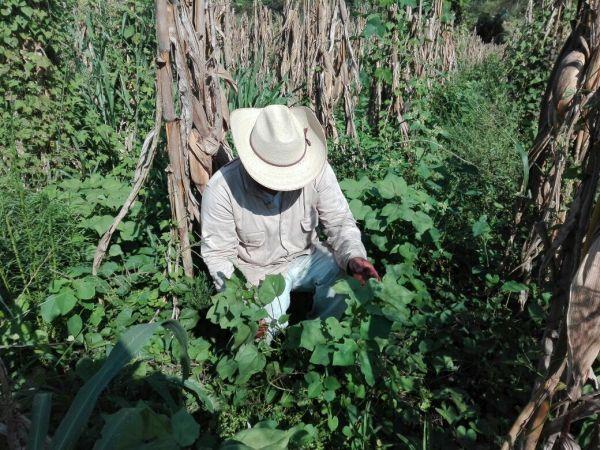
معلومات المشروع
- Mixtec and Spanish
- https://www.facebook.com/p/%C3%91uu-Ndito-100075953646696/?_rdr
- Calle Independencia, S/N San Pedro Jicayan Oaxaca 71740 Mexico
Organización Ecologica Sol y Verde
Organización Ecológica Sol y Verde is a grassroots, regenerative and educational non-profit working in a rural and Indigenous context on the edge of the Maya Biosphere Reserve in northern Guatemala.
Sol y Verde’s mission is to protect and restore threatened ecosystems, by supporting climate justice, community resilience and the preservation and celebration of the Indigenous culture it is part of. Its work focuses on land-use solutions and stewardship to secure food sovereignty for vulnerable rural communities, particularly women, youth, and Indigenous groups impacted by displacement and climate change.
Its work has focused on the following areas:
- Nature restoration and agroecology – Regenerating endangered ecosystems by reforesting the jungle landscape, propagating and cultivating endangered plant species, and supporting local families to transition to regenerative agricultural practices, particularly through soil restoration and agroforestry.
- Placemaking through bioconstruction – Improving infrastructure with the local community in ways that are accessible, sustainable, and equipped to face ecological and economic challenges through natural materials that are sourced regeneratively and from agricultural land. This means that Sol y Verde almost exclusively uses local and bio-based materials, often considered as waste.
- Community support and wellbeing – Sol y Verde believes community participation is the key to securing long-term change. It provides safe and supportive spaces for women and children to learn new regenerative skills and exchange knowledge about land stewardship and ancestral medicine through practical and creative education. This helps create financial independence, develop strong local social ties and reinforces a sense of belonging.
- 2025
- Young Projects
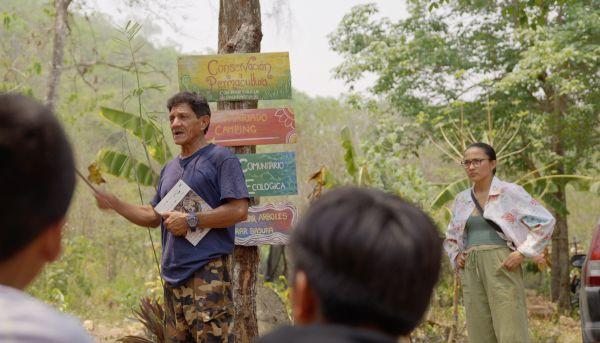
معلومات المشروع
- Spanish and English
- https://solyverde.org/
- https://www.facebook.com/orgsolyverde/
- https://www.instagram.com/solyverdeorg/
- organizacionsolyverde@gmail.com
-
Aldea Paxcaman Flores Petén, Guatemala
Perfect Village Communities
Perfect Village Communities (PVC)’s mission is to empower rural communities in the East African country of Burundi against poverty and human and environmental health issues.
PVC was founded in 2020 by a nurse who noticed the malnutrition and ill-health suffered by his local community and understood that this was linked not only to the accessibility of healthcare but also to the environmental degradation of their land.
It has revived lost indigenous knowledge, such as traditional medicine and practices that promote soil regeneration using natural solutions produced from local plants. This has enabled the community to replace toxic products used in agriculture that pollute the environment, harm human health, and decrease subsistence farmer’s harvest quality and livelihood.
It prioritises empowering vulnerable populations to meet their own needs while respecting the environment. By introducing regenerative agriculture, communities have become able to develop their own food value chains, enabling them to feed their families.
So far it has:
- Produced and planted 950,000 diverse seedlings and trees (including indigenous, medical and crop species).
- Regenerated over 5,000 hectares of farmland and mountains drawing on permaculture and agroecology.
- Involved over 10,000 community members in training and other activities.
- Successfully partnered with local organisations to create 4,500 new jobs and offer health services to over 12,000 patients.
- 2025
- Young Projects
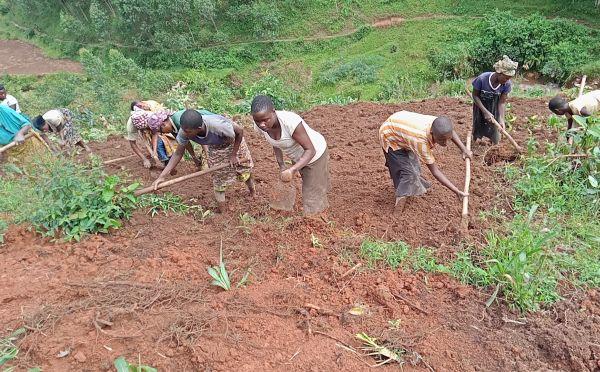
معلومات المشروع
- English
- https://www.facebook.com/Perfectvillagecommunities
- https://twitter.com/VillagePerfect
- perfectvillagec@gmail.com
- Nyabiraba, Bujumbura Rural Province, Burundi
PermaQueer
PermaQueer is an Indigenous and queer-led platform focused on ecological advocacy and education, empowering First Nations, LGBTQIA+, and marginalised communities. It is based in a queer community in Githabul Country in Northern New South Wales, Australia.
Founded in 2019, it began with permaculture education to enhance ecological design and food literacy in local queer communities, then expanded its mission to develop resilient, sovereign local food systems globally.
PermaQueer’s approach integrates social and ecological systems, utilising systems design methodologies to build collaborative capacity and foster regenerative actions. This has allowed it to connect diverse communities and organisations, bridging gaps often seen as separate.
Since receiving the Intentional Spring Prize in 2021, it has launched several initiatives, including:
- TEDxPermaQueer Cultural Responses to Climate Change: a global symposium featuring Indigenous leaders.
- VicHealth’s Future Healthy Food Hubs: a two-year traineeship for diverse youth in Victoria.
- Youth Food Collective: an advocacy network for young people focused on regenerative food systems.
- Youth Living Food Charter: a collaborative visioning process for future food systems.
- Queer Regenerative Design Course: training over 96 individuals, half receiving scholarships.
- Support for regional initiatives: facilitating food swaps, exchanges, and garden trails.
It has also presented at numerous events, including the World Community Development Conference and the Australasian Permaculture Convergence 2022. Through these efforts, Permaqueer continues to build resilience and engage communities in addressing ecological challenges.
- 2025
- Young Projects
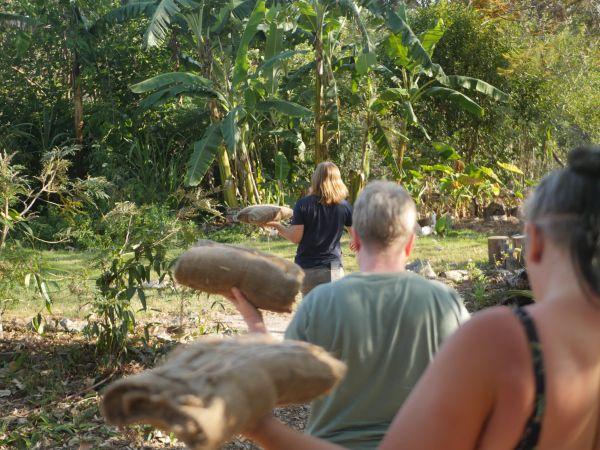
معلومات المشروع
- English
- https://www.permaqueer.com/
- https://www.facebook.com/PermaQueer
- https://www.instagram.com/perma.queer/
- +61 477 795 734
- Guy@PermaQueer.com
- 87 Hetherington Road, Wadeville, NSW, 2474, Australia
The Ecosystem Carbon Conservation
The Ecosystem Carbon Conservation (TECC) is an innovative organisation dedicated to the restoration, conservation, and sustainable management of high-mountain peatlands and other strategic ecosystems in Colombia.
It works at the intersection of science, community engagement, and climate action to address pressing environmental challenges, such as climate change, water scarcity, and biodiversity loss.
Its mission is to create scalable, nature-based solutions to:
- Mitigate carbon emissions.
- Improve water regulation.
- Protect the rich biodiversity of peatlands.
Since its inception, TECC has developed and implemented a range of projects, including Turberas para el Futuro (Peatlands for Future) a pioneering initiative for the restoration and conservation of peatlands located in the Páramo Almorzadero area of Colombia. These critical ecosystems and carbon sinks are threatened by agricultural expansion and land degradation in the area.
It works closely with local communities, such as the Cruz Rivera family, who have been long-time guardians of this region’s biodiversity, including species like the Andean condor and the Virginian owl. TECC views local communities as partners, not subjects, in research and conservation. This approach has helped decolonise science and promote equitable knowledge sharing. It aims to develop training programmes focused on sustainable land management practices, enabling community members to engage in restoration efforts actively.
- 2025
- Young Projects
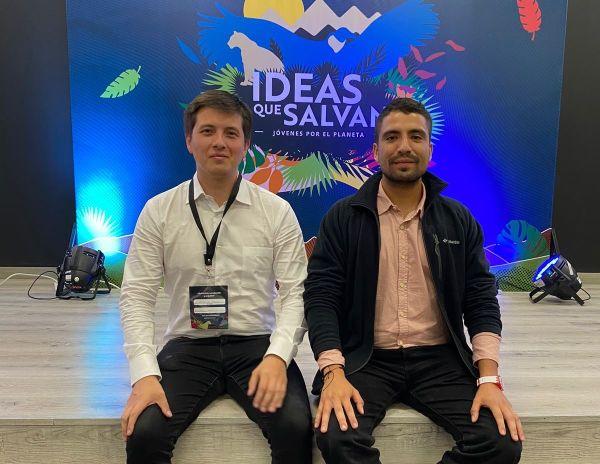
معلومات المشروع
- Spanish
- https://www.instagram.com/turberas_para_el_futuro/
- CARRERA 35 # 63C-24 BOGOTÁ Colombia
The Northern Lights
The Northern Lights is a non-profit organisation dedicated to experimenting with, exchanging, and teaching regenerative practices while providing a welcoming space for social gatherings and creative inspiration in the Rhône-Alpes region of Eastern France.
Their mission is to cultivate minds, train hands, and connect hearts to nurture a vibrant world where all beings coexist harmoniously. The organisation hosts workshops, seminars, events, and volunteering programmes for both local and international communities, equipping participants with practical tools to develop their own socio-ecologically resilient initiatives.
Since their inception in 2020, The Northern Lights has:
- Empowered Youth: Equipped over 300 young Europeans with knowledge in permaculture, agroforestry, and regenerative hydrology, among other practices, through six Erasmus+ programmes.
- Restored Ecosystems: Planted nearly 5,000 trees to create hedgerows that support wildlife, built two ponds to foster biodiversity and manage water, and practised regenerative farming using ancient crop varieties.
- Established Sustainable Infrastructure: Renovated a traditional farmhouse to enhance energy efficiency, implemented a greywater management system, and introduced a composting process to optimise resource circulation.
- Strengthened Community Bonds: Fostered social connections within the local community, encouraged local farmers to adopt regenerative practices, and created new job opportunities.
By integrating ecological restoration, community revitalisation, and youth empowerment, The Northern Lights is building a vibrant, adaptable community that bridges generations and strengthens both ecological and social systems for a sustainable future.
- 2025
- Young Projects
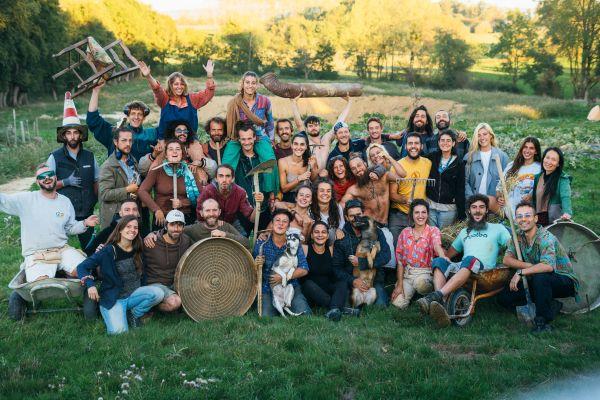
معلومات المشروع
- French and English
- https://www.thenorthernlightsnpo.com
- https://www.facebook.com/TheNorthernLightsNonProfitOrganization
- https://www.instagram.com/thenorthernlightsnpo
- thenorthernlightsorg@gmail.com
- 510 Route de Matrignat, 01560 Saint-Nizier-le-Bouchoux, France
The Returning Indigenous Corporation
The Returning Indigenous Corporation is an Indigenous women-led not-for-profit based in Bundjalung Country, Australia. Its mission is to bring all people back into right relationship with self, community and Country, creating healing for ourselves and for the planet.
The Returning Indigenous Corporation was established to deepen and expand on the decolonised cultural and wellbeing events already being run by its founder, creating opportunities for Indigenous cultural facilitators to lead the regeneration and social resilience movement on Bundjalung Country.
Its primary purpose is to provide opportunities and support for Indigenous women, Elders and their families to connect with Country, be recognised and remunerated for their cultural knowledge, and improve their health and wellbeing. Its secondary purpose is to build deep connections between Indigenous and non-Indigenous people, inviting all people to learn from their ancient wisdoms and cultures.
The Returning Indigenous Corporation offers seven programmes across the region focusing on nature therapy principals, health retreats and family support services. The Indigenous-only programmes offer safe spaces of healing and cultural connection, while the open programmes create deep learning, connection and healing between Indigenous and non-Indigenous people.
The organisation recognises that climate change is already disproportionately affecting Indigenous people on Bundjalung Country and believes that through reconnecting all people with land, waters, health and wellbeing, everyone can thrive together as a resilient and regenerative community.
- 2025
- Young Projects
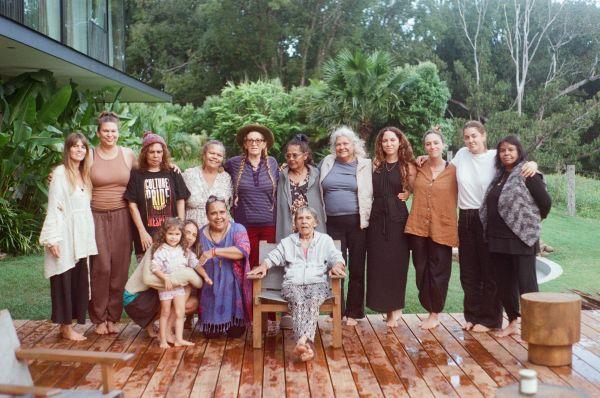
معلومات المشروع
- English and Bundjalung
- https://www.thereturning.com.au/
- https://www.facebook.com/thereturning
- https://www.instagram.com/the_returning_/
-
51-53 Burringbar Street Mullumbimby NSW 2482 Australia